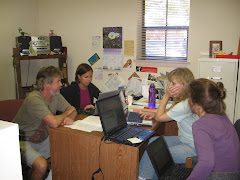Thursday, January 31, 2013
A WICKED PROBLEM
A simple problem is one where the issue, difficulty or challenge is not controversial or contested and neither is the solution. Complex problems are those where either the issue or the solution is multi-faceted and unresolved. Wicked problems are those where both the challenge and the solution are controversial, complex and hotly debated. Wicked problems are, in the words of John Kolko, worth solving.
Curriculum design is a wicked problem.
As a challenge, it is complex and multi-faceted. It involves identifying, at one level, the needs of communities, even nations and, at the other, of individuals. It calls for the documenting of the available resources, of the views and capabilities of stakeholders. It involves a deep understanding of the processes of learning and teaching. The solutions are similarly complex: they involve dimensions across time (where to start, how to proceed, how rapidly) as well as multiple decisions at each point of time: what content, what procedures, how many choices, what forms of assessment. They involve setting goals in four different but related categories: cognitive (what will participants know, be aware of, be familiar with?), performative (what will participants be able to do and at what level of skill and accuracy), affective (how will they feel about the content, about their developing skills, about themselves, about each other?) and metacognitive (how will present learning facilitate future autonomous learning and personal development, producing lifelong learners?).
Designing language curriculum is a wicked problem.
Because it involves all of the above, plus an extra dimension: knowledge and skills in another language; attitudes towards speakers of that language and their culture; long-term capabilities for continuing to expand and enhance proficiency. It involves particular challenges of resourcing, especially in foreign language contexts where authentic and natural samples of and interactions in the target language are not locally available. It requires teachers whose own capacity to use and explain that language must be initially strong and must be continuously nurtured and enriched.
Wicked problems are not, of course, inherently evil. But they are thornily resistant to easy solutions. The best curricula are never finished: they are constantly replenished as new data about learners and learning processes must be analysed, leading to new designs for procedures and materials. Here is a simple example: every summer, the Monterey Institute conducts a short, intensive programme called English Refinement for Fulbright Scholars. Each year, some 40 scholars from about 30 countries gather to polish their English language skills and learn about the life of graduate students in American universities. There is a Reading and Writing component, in which participants become familiar with the discourse of their field of study by reading and analysing current textual practice in journals and professional publications. Our commitment is that everything they read will have been published in the current year. Which means that each year, the materials from the course are discarded and must be replaced the following summer. More complex examples involve the use of digital tools and social media as part of the course - and preparation for the course and follow-up, as participants are tracked during their subsequent experience to further inform subsequent versions of the programme.
Designing language curriculum is truly a wicked problem.
Subscribe to:
Posts (Atom)





